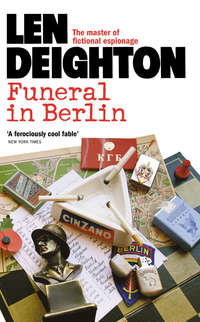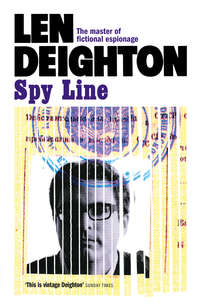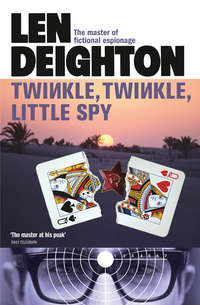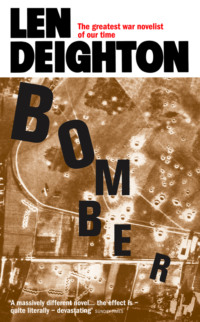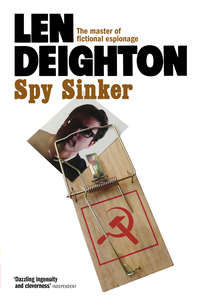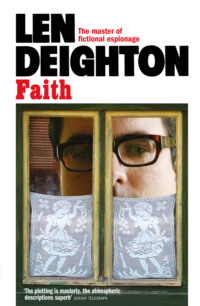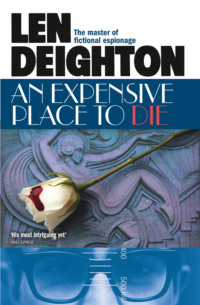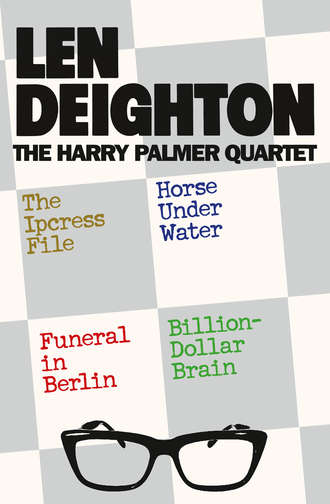
Полная версия
The Harry Palmer Quartet
‘And?’
‘The most valuable?’
‘People with information,’ I suggested.
‘Yes, that’s what I think, but you’ll not get me to say so at this stage in the game.’
‘Was that fellow Raven we grabbed at Baalbek part of this scene?’
‘He was the chemical warfare biochemist from the Research place at Porton. But the number of people they take are very small. Naturally the Press Department (Security) keep any names out of the papers. We’re not having another Burgess and Maclean shindy, questions in the House and all that.’
‘You think the work Carswell is doing has Jay involved?’
‘No, I think that although the money Jay gets for a B & M operation is vast, he is smart enough to realize that to continue that is to live on borrowed time. I think he grabs an S.1 now and again when he needs some mad money but certainly not on the sort of scale that Carswell is talking of. He’d have to run coaches and advertise in the Observer. I’d leave Carswell right out of your calculations until he starts getting something a little more concrete. You’ll look an absolute clown talking to the Permanent Under-secretary about …’ He turned to the list I’d pinned up ‘… right-handed “concens” with fever.’ He eased his weight off my desk and bent his knees, quickly sweeping his hand under my desk top. He switched off the miniature tape recorder I had had going. He walked to the door, then came back. ‘Just one more small thing, you secret service man, you, try and have a haircut while I’m away and I’ll use my influence about your back pay!’
I heard him clumping down the back stairs shouting to Chico to prepare the film he wanted to see before leaving. I collected up my history books, cameras and my sugar, and moved into Dalby’s office.
It was easily the lightest room in the building, and if you didn’t move more than a couple of feet from the window you could see to read a newspaper.
There were plenty of newspapers. It all had that brown veneered respectable look; on the wall were a couple of well-framed military prints of soldiers in red coats and shakos, sitting on horses. Under the windows was Dalby’s latest toy – a low, grey IBM machine. Dalby was a young ambitious man, active and aggressive and one of the best bosses I ever had, but no one could suggest that he had ever had an original idea in his whole life and he’d never missed them. He recognized one when he saw one – he fought for it, utilized it, and what’s more, gave its originator all the credit.
This IBM machine was the key to WOOC(P)’s reputation, for it enabled us to have files of information around which no one could correlate except with the machine set the correct way. For instance, a list of three hundred names meant nothing, a list of three hundred house numbers meant nothing, a list of three hundred street names, cities, and a pile of photos meant nothing. On the machine and suddenly – each photo had an address. On the machine again and thirty cards were rejected, and only Dalby knew whether those thirty were left-handed pistol shots, Young Conservatives, or bricklayers fluent in Mandarin. Dalby liked it, it was quick, more efficient than humans, and it made Dalby one of the most powerful men in England.
Sunday I went along to the office about ten-thirty. I didn’t normally go in on Sunday but there was a book in the information room I wanted. I got there about ten-thirty and wandered into Dalby’s office. The Sunday papers were there in place on top of Saturday’s. The cover was off the IBM machine, and I could hear Alice fiddling about making coffee. I sat down behind Dalby’s magnificent oiled teak desk. Its smooth light-brown top had the sensual colour of the beach at Nice, when it is covered with girls, you understand. Inlaid with old English craftsmanship into the Danish teak desk top were four metal switches and coloured lights, BLUE, GREEN, RED and WHITE. The BLUE switch put any calls being made in the building to tap into the phone here. GREEN made a tape of what was being said. WHITE switched any calls made in Dalby’s absence into the tape so that he could play it back next morning. RED was to call every phone in this building simultaneously – no one can remember it being used except once when Dalby shouted for some ink over it.
I looked up. Alice was standing in the doorway, holding two willow-pattern cups. She wore a floral print dress of the sort favoured by Mrs Khrushchev, heavy nylons and strap shoes. Her hair was almost feminine today but that did nothing to offset the sourness of her white regular features.
‘Coffee,’ she said. I didn’t contradict her, but Alice’s fusion of milk, warm water and the coffee powder was like something flushed from a radiator.
‘That’s nice of you, Alice,’ I said. ‘You really don’t have to work Sundays, too, do you?’
Her face screwed into a smile like an old gardening glove. ‘It’s quieter on Sundays, sir – I seem to get more done.’ She set the cups down and looked around the room. It was untidy again and she tutted and straightened up a pile of newspapers, took my raincoat off the chair and hung it behind the door. ‘You’re managing to work the machine now?’ she asked.
‘After a fashion,’ I told her. ‘There are still a few things I don’t understand. The selector for the photos for instance.’ I passed her a package of photos with the strip of perforated paper along one side. Alice took the bundle without looking at it, her eyes were level with mine. She said, ‘You are an awful lot too honest for this work. You’d better learn who to confide your weaknesses to before it’s too late.’
I said nothing, so she said, ‘I’ll go and get my glasses and see if I can make the photo-selector work.’
Old Alice was getting quite mellow. I wondered if I could ask her to sew up the trousers I had torn at the Barbarossa Club.
Carswell had spent about a week on S.1’s who had suffered from housebreaking or burglary with an eye to espionage by this means. He was getting very interested in the patterns and needed Murray to help him tie it down. Murray was a bit reluctant to leave his ‘concens’, but they were now finding smaller concens throughout the whole period. What had looked most mysterious in terms of one high point per year could now be seen as a wavy line of varying height. It was just a matter of how far above average was abnormal. As Carswell had most reluctantly agreed, there are also geographical areas which at any one time are abnormally low in S.1’s. He had drawn this up, marking the areas in varying shades of green crosshatched mapping pen lines according to percentage below average. The areas were called evacuations, and the individual S.1’s temporarily out of the areas called ‘evacs’. I am not a statistician but it all struck me as being pretty damn foolish. Carswell wasn’t the type for a legpull, but he was the only person in the building from whom I could take the idea of ‘evacs’ without getting the needle. We had done pretty well by the old man. I just wasn’t sure whether he wasn’t trying to dig himself a niche in the time-honoured army way. I was getting pretty fed up with his housebreaking stats, too, and began to feel that those two were taking me for a ride. I think Carswell could see I was getting fed up with it. On Tuesday I had Carswell in for a drink in the office. He seemed a bit depressed. He had three beers in quick succession and then began to tell me of his childhood in India. His father had insisted upon Carswell going into the regiment. The polo, the pig-sticking, the punitive actions against the tribesmen who enjoyed the fighting as much as the young English aristocrats did, the sun, horses galloping in the open hill country, drinks and mess dinners, the other young subalterns wrecking the mess in horseplay. All these things were things of his father’s life, and when his father died he immediately asked for a posting to another unit. He chose a unit as diametrically opposed to his father’s as he could think of; Indian Army Statistical Office, Calcutta. He had no interest or aptitude for the work. He did it as quiet rebellion against his life until then.
‘For perhaps two years the work was pure drudgery; especially since, for a brain as inactive as mine was, the elementary calculations were slow and tedious. But after a little while I got used to the tedium, understanding that these parts of my work were as essential to the arabesques of the final pattern as the rest bars are to a symphony.’
He was telling me not to be bull-headed in a nice sort of way. Carswell must have been the only officer in the entire British army who had deliberately thrown away a commission in a crack cavalry regiment in exchange for a dreary office job that had left him nudging sixty, a substantive captain, with little or no prospect of a move past substantive major, if that.
I think we had both been overdoing it from a work point of view. We decided to go home. Through the window I could see the delicatessen crowded with people in wet raincoats. I phoned down for Murray, and asked him if he would like to come up for a drink. My red emergency phone rang before I’d put the internal one down. The operator with the Scotch accent said, ‘CRO calling you, sir. Class four, priority. Please scramble.’
I pushed the scrambler button and switched in the green switch of the recording apparatus. I heard the operator tell them they were through to me.
A high-pitched falsetto voice that I had spoken with before said, ‘Hello, Criminal Records Office, Scotland Yard. Military Liaison Officer Captain Keightley speaking.’
I said, ‘Yes, Keightley?’ I knew my evening by the coal fire with a history book had gone bang.
1 Name withdrawn from MS.
11
[Aquarius (Jan 20–Feb 19) Don’t be surprised if trips to other people’s houses bring whispers of insincerity for you will also discover a new friendship.]
‘We’ve had a call from Shoreditch Police Station, sir. Frightfully funny business really.’ All Keightley’s ‘r’s were pronounced like a ‘w’. ‘They have a fellow there. Traffic accident. His car scraped a traffic signal I believe.’
‘Yes,’ I said. ‘So?’
‘Well sir, the constable asked him for his licence and so on …’
‘Keightley, get to the point please.’
‘Well, sir, this johnny in the car. We’ve no record here at the CRO, not a white card that is, but there is a green card for him. You know it’s for suspected persons without a criminal record.’
‘Yes, I know that. Tell me, how did you locate his card? Did he give his name?’
‘No, sir. That’s just it. You see, this johnny is dressed up in a Metropolitan Police, Chief Inspector’s uniform. Luckily the constable had worked in CRO for a year, recognized him and remembered the face. He thought we had a white card but we only have a green one. It’s endorsed to your department, with one of those star marks for top priority. So I phoned you. What we want to know, sir, is, shall we tell Shoreditch that there is a green card? There may be an Interpol card of course. Do you want him? That’s what I want to know, sir.’
‘Listen, Keightley. Tell Shoreditch I want this man held. In fact I want him stripped. I want them to be most careful. Watch for cyanide pills. This could be very important. Tell the chief there that I’m holding him personally responsible for the prisoner’s safety. I want him under lock and key from the minute you finish talking to them, and he’s to be kept under constant observation. Oh, yes, and make sure the constable that brought him in is available – they should make that copper a sergeant on the spot. Pulling in an inspector, indeed: some nerve; and tell them I’m leaving right away. I’ll be there before 7.30.’
‘Yes, sir, right away, sir.’
‘Oh, and Keightley.’
‘Sir?’
‘You did right to tell me immediately, whatever the outcome.’
‘Thank you, sir.’
I buzzed my controller on the big exchange and they had a black Jaguar at the ready. I locked the IBM and the recorder, I pressed the white button that set the phone to automatic recording. Murray still hadn’t finished his drink and asked me if he could come for the ride. I don’t have fixed rules about that sort of thing so I said OK. Carswell decided to call it a day. We walked across to Tottenham Court Road and within an instant of reaching the corner the car swept us in. The driver was one of the civilians the police let us have just after the war so he needed no guidance to Shoreditch Police Station. We moved across into the New Oxford Street traffic and up Theobalds Road. I let the driver use the bell and he pulled over to the offside of Clerkenwell Road and shot the speedometer up to seventy.
We were half-way across City Road when a yellow newspaper van coming north from Moorgate realized that we weren’t stopping either. The van wheels locked as the driver hit the brake pedal. Our driver pushed the accelerator even harder, which gave the van an inch or so of clearance as it slid across behind us with white hot brakes and the driver’s face to match. The last thing I wanted at this stage was that sort of complication.
‘Careful,’ I said, in what I considered masterful restraint.
‘That’s all right, sir,’ said the driver, mistaking vexation for nervousness. ‘They’ve got rubber mudguards on those paper vans.’
I realized why the police had let us have him.
It had really begun to rain in earnest now and the streets were a kaleidoscope of reflected taillights and neon. As we drew up in front of the Police Station three policemen were standing in the doorway. I’m glad they weren’t fooling about as far as security was concerned. The driver left the car and came into the station with us. He probably thought he’d see someone he knew. Murray and I were greeted by the sergeant that Keightley had spoken to.
‘All absolutely under control, sir,’ he said proudly. ‘No sooner said than done. Your other two people are parking their car. They needn’t have troubled …’
‘Other two people?’ I said. A cold colicky pain kneaded my stomach. I knew that I needn’t have troubled either. When we got to him he was naked, horizontal and very dead. I turned the body over. He was a strong, good-looking man of about thirty-five. He looked older close to than when I’d seen him before. We could cross Housemartin off our files. Just as Jay’s people were crossing him off theirs right now. It was 7.33. His uniform gave clues – a packet of cigarettes, some money – £3 15s 0d, a handkerchief. I sent immediately for the police constable who had pulled him in. I asked him everything that had happened.
PC Viney came in with a half-written report and a small stub of pencil. He was almost bald, a thick-set man, perhaps an ex-army athlete, a little towards the plump side, he even now would make a formidable opponent. His thin hair, white at the temples, framed his very small ears set well back; a large nose was red from the night air; and his lower jaw was carried well forward in the way that guardsmen and policemen cope with chin straps that don’t fit under the jaw. Under his open tunic he wore a badly knitted red pullover with blue braces over the top. His attitude was relaxed and shrewd, as could be expected from someone who had pulled in a man dressed as an inspector.
The sergeant behind me was leaning in the cell door saying, ‘In thirty-five years of service …’ loud enough for me to hear, and worrying himself sick about his pension.
I turned back to the constable. He told me that he had suspected Housemartin’s demeanour right from first sight, but would never have come to close enough quarters to recognize him if he hadn’t hit the traffic light. Did he think that the man had come from any of the nearby houses? He thought he might have been pulling out into traffic.
‘Now don’t worry about law court stuff, constable,’ I told him. ‘I’d sooner you told me something that’s a flimsy guess than hesitate because we can’t prove it. Now just let’s suppose that this man did pull away from the kerb and that he had come from one of the houses in that street. Think carefully of that row of houses. Do you know it well?’
‘Yes, sir, fairly well. They all have their peculiarities. Quite a few of the houses have front rooms where the curtains are never pulled back or changed, but that’s the English front room, isn’t it, sir?’
‘The sort of house I’d be interested in is one where new tenants have moved in during the last six months. A house where new people have been seen going in and out. People not of the neighbourhood, that is. Is there a house that is particularly secluded? It would have a garage and the driver might be able to enter the house direct from the garage.’
Viney said, ‘All the houses there stand back from the street, but one in particular is secluded because the owner has bought the undeveloped site on each side of the house. Of course, the houses either side of it are also secluded, but only on one side. Number 40 is one side, that’s all flats – young married couples mostly. Mrs Grant owns that. On the other side 44 is a very low building; the husband there is a waiter in the West End. I see him about two to two-thirty on the night beat. I know that Mr Edwards at the Car Mart made an offer for one of the sites. We kept pinching him for obstruction. He left his cars in the road. After we’d had him every day nearly for about a week, he came up to see the sergeant. I think really he told us about buying the site to show he was trying. But anyway, they wouldn’t sell. When I think of it, that’s the only house that I can’t remember any of the occupiers from. They had a lot of building done. Conversion into flats I imagine. About February. But there are no “to let” signs up. Not that you need ’em, word of mouth is enough.’
‘You’ve hit it, constable. I’ll buy your big secluded house with alterations.’
Keightley had phoned up the station and got them all in a rare state when he heard what had happened. Murray had heard Keightley’s high-pitched little voice saying, ‘Murder? Murder? Murder in a police station?’ Coming as Keightley’s voice did from CRO it worried them far more than anything I might say.
I had them do all the unit checks for fingerprints and Identikit descriptions of the two men – but knowing Jay’s set-up it was unlikely they would have a record of any sort, or leave prints. The constable recognizing Housemartin from a photo he’d seen once at CRO1 was the sort of fluke that happens only very rarely. I turned to PC Viney who had brought me a cup of tea from the canteen. He stood, his uniform jacket undone, waiting and appraising my next action. I said to him, ‘Show me on the map, would you? And then I will want to use a phone in private – a scrambled line if possible.’
The information room at Scotland Yard came through in seconds. ‘Shoreditch Police Station. I want to speak with an officer of 3H Security Clearance or above; my authority is WOOC(P).’
‘Hold the line, sir.’
The unshaded light made bright reflections in the shiny-cream paintwork. Faintly through the closed door I could hear the canteen radio singing ‘There’s a Small Hotel’. My tea sat on the worn desk and I fiddled nervously with an old shell case made into a pen-and-ink stand. Finally the phone made clicking sounds and the information room came back on the line.
‘Chief Inspector Banbury, CID here.’
Luckily I knew ‘Cuff-links’ Banbury from the old days. It saved a lot of preliminary checking with code words. Or rather it would have done, except that ‘Cuff-links’ insisted on going through it all. I wanted thirty officers, at least five of them armed, and four vehicles without police identification.
‘All the plain-finish vehicles are in the Richmond garage,’ Cuff-links said.
‘Then borrow private cars from your coppers. Try West End Central, they’ve got big cars there.’ My sarcasm was lost on Cuff-links; he just carried on being smooth and efficient. ‘I want one car to have radio link. I shall be briefing them en route. Include a couple of hook ladders and a jemmy. Tell your press office that I want “complete blackout”, and put someone on the radio link that won’t shoot his mouth. That’s all, chief. Phone me back when they are on the road – say thirty minutes.’
‘No, about an hour.’
‘No good, chief, this is a 3H Security. If you can’t do better than that I’ll get authority to use my soldiers.’
‘Well, I’ll try for forty minutes.’
‘Thanks, chief. See you.’ It was 7.58.
I went upstairs. Murray was leaning over a big scrubbed table with the elderly constable, a sergeant and an inspector with a neatly trimmed moustache. I asked the sergeant who the inspector was. It didn’t make any of them madly happy, but ‘twice bitten could get to be a habit’. Murray had worked out a sensible way of hitting 42 Acacia Drive. He had dug out a photo of the street and had drawn a diagram showing heights of garden walls and deploying twenty-five men. Murray had also implied by unknown subtle means that his rank was considerably higher than sergeant. The inspector was deferring to his suggestions and the police sergeant was saying, ‘Yes sir, good sir, very good, sir.’ I told the policemen that they could come along if they wished, but explained that since I had put ‘complete blackout’ on the operation, any leakage would be actionable under the Official Secrets Act.
Murray used a propelling pencil with changeable coloured leads to mark in the extra five men; then we stood around drinking another cup of sweet tea. By now the canteen was organized for the top brass. I had a swallow-pattern cup with a saucer to match and a spoon. Murray decided that this was a good time to ask about his living-out allowance. It was nearly three months behind. I said I’d do what I could.
At 8.21, after a knock at the door, a constable said a military police vehicle had just driven into the courtyard, the driver asking for ‘Mr’ Murray. Murray said he thought a Champ vehicle with radio equipment ‘might be useful’. He’d asked for it to drive in instead of parking conspicuously. Murray and I went downstairs to see if the radio could get the Scotland Yard wavelength. He told me that by having a Provost vehicle we automatically got a revolver and ammunition and what he described as ‘other useful things’. Murray was proving so unlike what I imagined that I decided to recheck his security clearance the next day.
1 Criminal Records Office.
12
Acacia Drive was a wide wet street in one of those districts where the suburbs creep stealthily in towards Central London. The soot-caked hedges loomed almost as high as the puny trees encased in their iron cages. Here and there a dirty net curtain let a glimmer from a 40-watt bulb escape to join the feeble street lighting.
We waited while the last two men got into position. A door opened somewhere down the street, firing a yellow shaft of light into the gloom. A man in a cloth cap pulled a silver fabric cover from a shrouded car. It proved to be not the one he was looking for. He lifted the silver skirt of the next car. The third one had the right number plate. He drove it off down the street which now became a dark and silent car mortuary once more.
No. 42 had two gates joined by a semicircular driveway of crunchy gravel. On the top floor one very small window showed a light. The Champ vehicle was nearer to the house than any of the private cars the police had used. In the back seat the military policeman was listening to the radio sets of the plainclothes men positioning themselves in the back garden. He gave us the high sign with thumb touching forefinger. Murray and I decided to force a window at the side of the house. The MP was to talk out a description of signals we gave him by torch. Murray had the jemmy and I had a sheet of brown paper covered with police canteen golden syrup.
The gravel crunched underfoot and an aeroplane winking coloured lights vibrated against the cloud. It had almost stopped raining, but the house shone wetly. The grounds were extensive and once across the path we plunged into the kitchen garden that lay alongside the house. The soles of my feet began to squelch as the soaked long grass sprinkled my legs, trousers and socks. We paused alongside the greenhouse through which the moon played shadow games, making mythical monsters of pots and beans and flowers. Every few seconds the house changed character, at one time menacing and sinister, and again the innocent abode of law-abiding citizens about to be attacked by my private army. The luminous watch said 9.11. Over the far side of the grounds I saw a movement by one of the policemen. The wind had dropped and now the aircraft had passed over it seemed very quiet and still. In the distance I heard a train. I stood there unhappily, my feet were wet and made little sucking sounds. I felt Murray touch my elbow with the cold metal jemmy. Looking round I found him pretending it was an accident. I took the hint. The side window was higher than it had looked from the road. Reaching up with the sticky brown paper I smoothed it across the glass and a little syrup ran down my wrist. Murray stuck the jemmy into the woodwork, but it was locked right enough. The window to the left was barred, so he hit the brown-paper-covered pane with the iron. A muffled syrupy crunch and then the broken glass fell inwards hinged on the brown paper. Murray was groping for the fastenings as we did a Charleston in slow motion on the flower-bed. The window swung open and Murray dived head first through. I saw the soles of his hand-made shoes (eighteen guineas) with a small sticky rectangular price tab still affixed under the instep. I passed the army pistol into his hand and followed.


